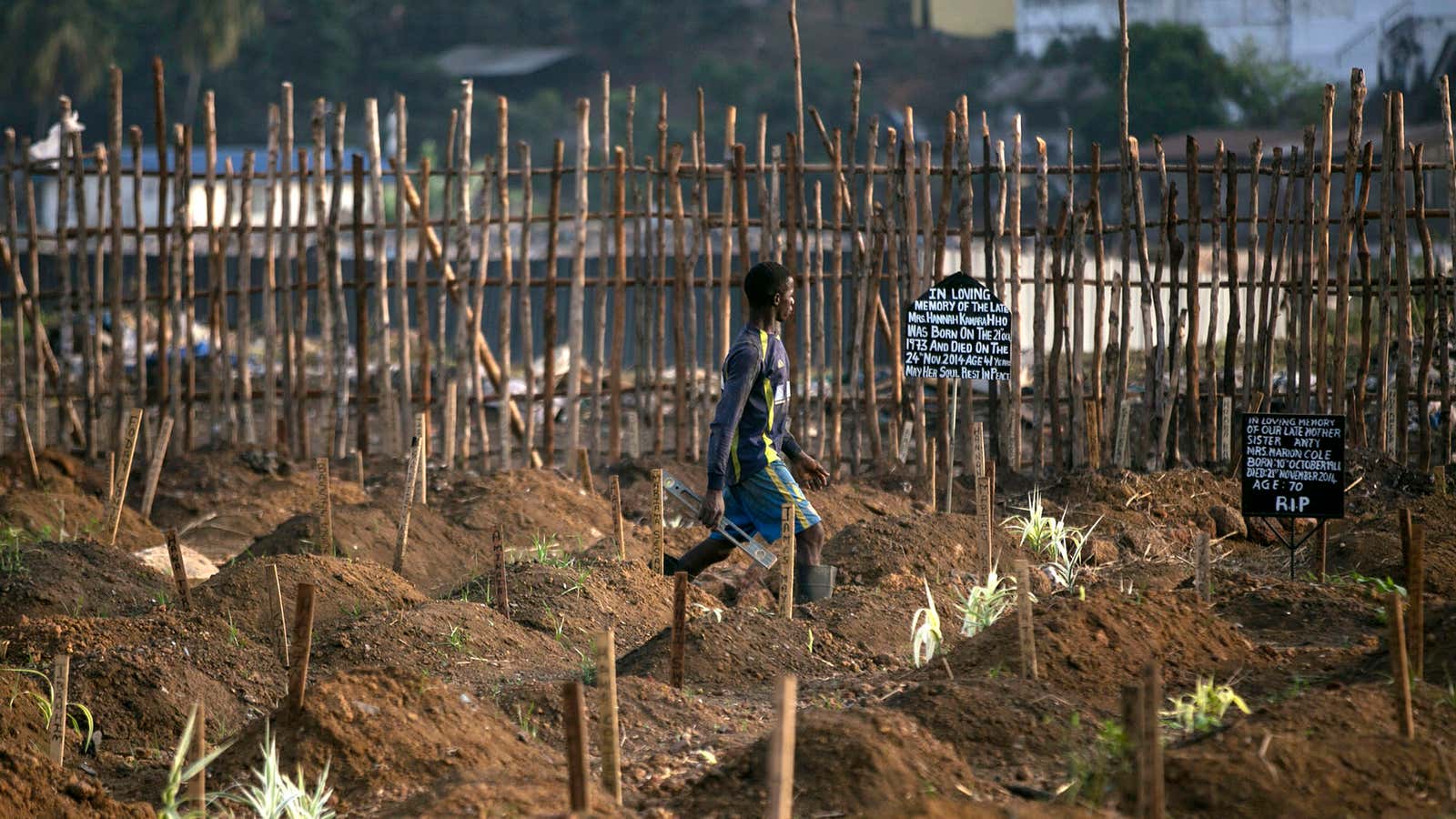If there is one thing we learned from the Ebola outbreak, it is that a quicker global response would have saved many lives. But, until now, we didn’t know how many. According to a new study, acting only a month earlier could have halved the number of Ebola cases.
Although the first cases of Ebola were detected in West Africa in December 2013, and the World Health Organization declared it an outbreak in March 2014, the international community waited until September 2014 to throw its full weight behind the effort. Between then and February 2015, nearly 1,500 treatment beds and 1,200 treatment units were added in the affected areas.
Adam Kucharski, an epidemiologist at the London School of Hygiene and Tropical Medicine, and his colleagues looked at data from this period to model how the interventions helped stop the spread of Ebola. Their analysis, published in the Proceedings of the National Academy of Sciences, suggests that without the extra help received, there would have been 57,000 more cases and, due to Ebola’s 70% fatality rate, 40,000 more deaths.
Coming up with these numbers wasn’t easy. There is little good data about outbreaks. It is not just that the number of cases is often underestimated, but we don’t know how much we underestimate them. Here, Kucharski and colleagues were fortunate: the spread of Ebola was mostly contained in Western Africa and record-keeping on the ground was better there than in other outbreaks.
“Still, there were things we could not factor with as much accuracy as we would have liked,” Kucharski told Quartz. “For instance, interventions such as avoiding touching during burying rituals were not easy to measure.”
Estimating the actual number of lives saved, even if there is a large degree of uncertainty, is useful for policymakers. Being able to quantify the impact that every dollar spent can have on health outcomes should speed approvals for future aid. And that’s important because, as the research shows, if the same intervention began a month earlier, tens of thousands of lives could have been saved.
